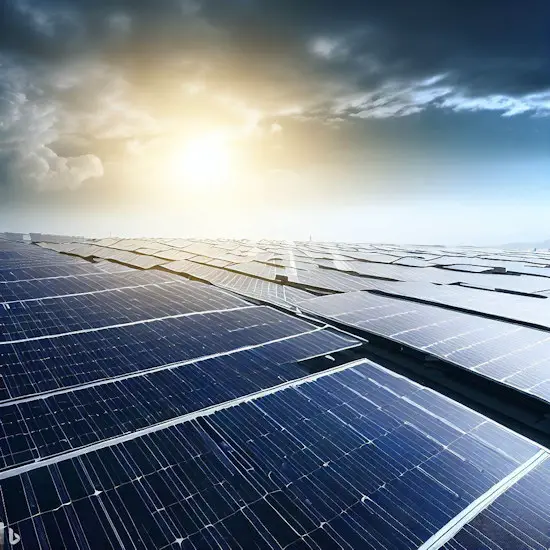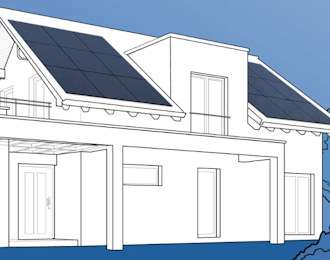
The major reason panels are scrapped is not that they don’t work, but like all tech items these days, new panels are so much more efficient than older panels, and most people have limited space. That means older panels take up a lot more space than newer panels for the same output.
Most solar panels have a 25 -30 year Guaranteed Lifespan. But that doesn’t mean that they no longer produce any electricity at that point. The guarantee says they will still produce X percent of their original rated wattage. Usually, that is something like 85% after 25 years. So, they are still producing well at that point.
But a company may replace them anyway. Then, they sell them to a wholesaler who sorts them according to looks and actual performance and sells them really cheaply to homeowners. Like $45 or $50 each. As of this writing, SanTan Solar has Blemished 250-watt Trina panels for $41 each.
Slightly Reduced Output

For instance, a panel that originally had a 250-watt output 25 years ago might still produce 212 watts (250 x .85 = 212.5). While the newest panels are producing 490 watts. But the newest panels may cost 10 times as much as a used panel.
So, if you have the space, or just want to experiment, it is a lot cheaper to buy used. Thus, many DIYers choose to start with used panels. On the other hand, many companies might replace their panels well before the 25 years to vastly increase their output for the same amount of space.
Currently, A1 Solar has brand new 450-watt panels for $319. Of course, the panels are a very small portion of the total solar cost. Inverters that convert the solar D/C current to household A/C current are expensive, as are the mounting hardware and the labor to install it.
Beware Solar Sales Companies
In addition, many solar sales companies spend a lot of money on calling and promoting and then they price the system based on your electric bills rather than on the actual cost of the solar components. They make it look like you are saving on your electricity, but the major beneficiary is really the solar salespeople. That is why it is important to find a reliable solar installer rather than one that is primarily a sales company that contracts with installers.
If you’re wondering what happens when solar panels are totally unusable, i.e., broken, they are sent to a recycler that harvests the components, including glass, aluminum, and silver.
You might also like:
- The Financial Benefits of Installing Solar Panels
- 6 Tips for Saving Money on Home Repairs
- Large Home Upgrades That Can Save You Money in the Long Run
- Tank vs. Tankless Water Heaters
- Undercut Utilities: How to Save on the Essentials
- How Turning Your House Into a Smart Home Can Save You Money
- Low-Cost Ways to Keep Your House Cool
